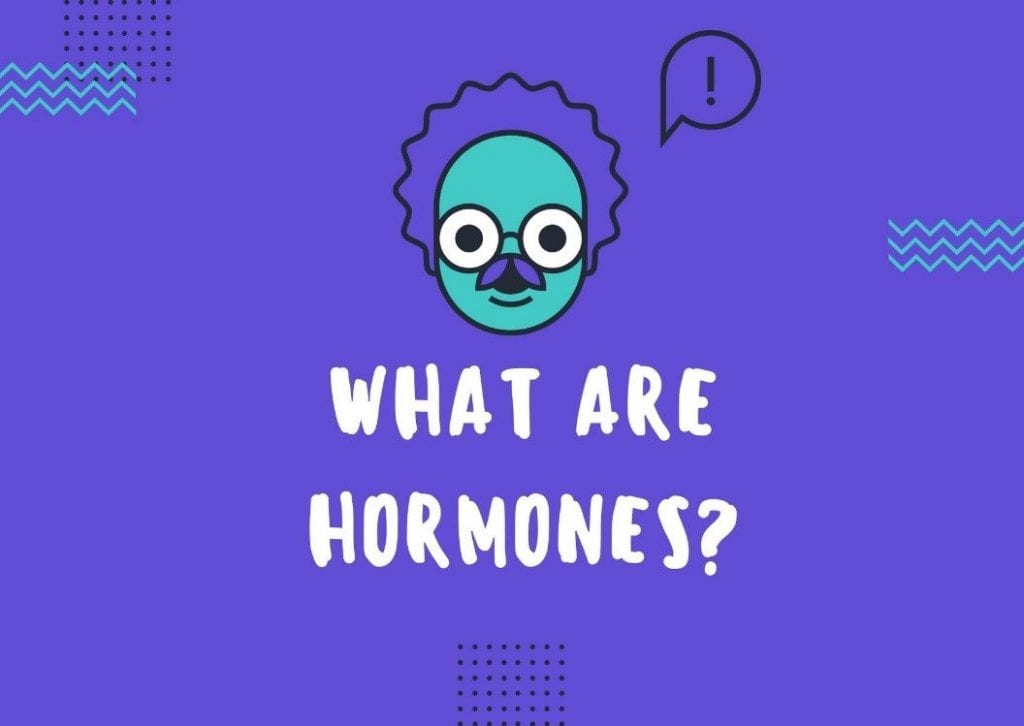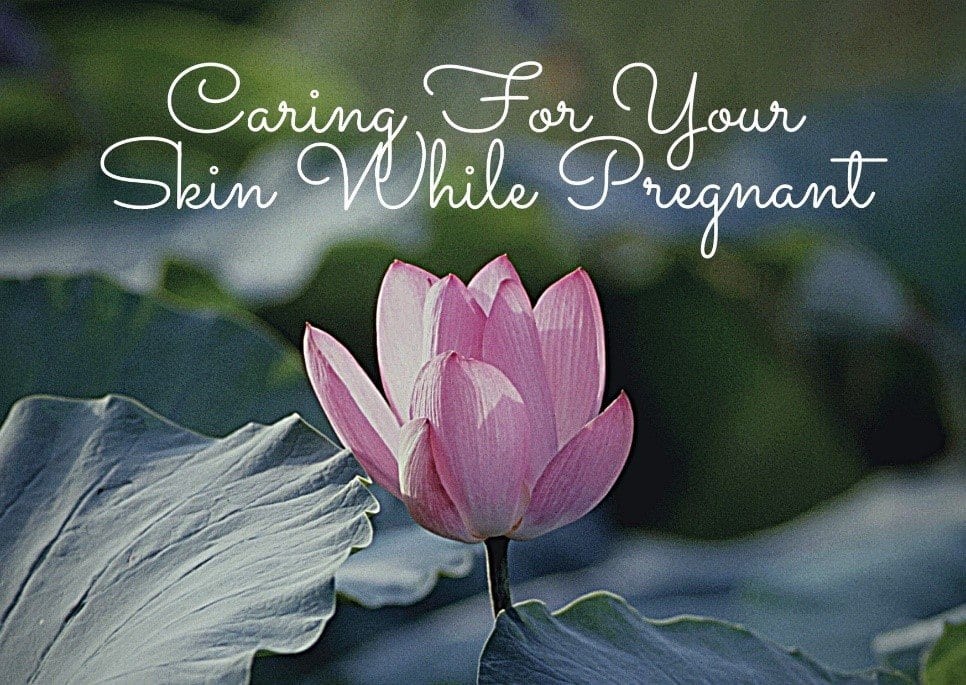
Among the many changes a woman’s body undergoes while pregnant, changes in the skin is probably one that is unique for every woman. See general pregnancy skincare advice here that may help you deal with the most common pregnant-momma skin issues.
You’re pregnant! That’s amazing news. We’re all very happy for you! Motherhood is an amazing journey filled with rewarding experiences that you’ll surely love.

By now, you’ve probably heard many tidbits of advice from other moms – from certain types of food you need to avoid to breastfeeding do’s and don’ts, we’re sure you’ve heard your fair share. Most of the advice you hear is probably consistent – rest, drink lots of water, stay away from stress, exercise and eat healthy.
But with skincare advice while pregnant? That’s a whole other scenario. Many well-meaning friends or family members automatically say “Oh my God, you’re gonna have that whole pregnant glow!” or “Look out for the acne – uggghh”. The feedback will be so varied that you’ll probably be confused which ones are true and which ones aren’t.
You may take all of these feedback in stride, have a careful look at your beautiful pregnant self in the mirror and ask:
- “Why am I not glowing?”
- “I don’t have acne but why is my skin super dry all of a sudden?”
- “What’s this black line on my belly?”
- “Are these rashes normal?”
Also, if this isn’t your first pregnancy, you’ll most likely have skin issues that you didn’t experience during your previous pregnancy. Each pregnancy is different, after all.
To give you some peace of mind, we’ve created a general guide for common skincare tips and skin problems you might encounter while you’re expecting.
But what causes all these changes in your body during pregnancy, anyway?
Let’s backtrack a little bit to the big H –
Hormones

The big science answer to this question we’ll take from Wikipedia:
“A hormone (from the Greek participle ὁρμῶν, “setting in motion”) is any member of a class of signaling molecules, produced by glands in multicellular organisms, that are transported by the circulatory system to target distant organs to regulate physiology and behavior.
Hormones serve to communicate between organs and tissues for physiological regulation and behavioral activities such as digestion, metabolism, respiration, tissue function, sensory perception, sleep, excretion, lactation, stress induction, growth and development, movement, reproduction, and mood manipulation.”
Simply speaking:
Hormones are little molecular messengers in your body that travel to other parts of the body to help control how cells and organs work.
For example, when little girls go through puberty, their young bodies go through lots of changes. The main hormones responsible for these changes are called estrogen (sometimes called the female hormone) and progesterone. Both estrogen and progesterone are hormones that are part of the menstrual cycle and they’re both responsible for physical changes that girls go through as they enter their teenage years e.g. widening of the hips, pubic hair growth, acne, etc.
As it happens, estrogen and progesterone hormones also play a huge part in your pregnancy. Estrogen forms in the placenta and helps you have a healthy pregnancy while progesterone helps in thickening the lining of your uterine in preparation for the fertilized egg a.k.a your new baby.
Other hormones that appear in your body during pregnancy are:
- Human chorionic gonadotropin hormone (hCG) which is a hormone that is produced only when you are pregnant. hCG levels in blood and urine is what determines if a woman is pregnant or not. It is also known to contribute to nausea and vomiting during the first 3 months of pregnancy.
- Human placental lactogen (hPL) is a hormone that your placenta produces during pregnancy. It’s a hormone that helps keep your baby healthy because it helps in the process of providing adequate nutrition to the baby growing inside you. hPL is also the hormone responsible for stimulating milk glands to help your body get ready to breastfeed your newborn baby.
Isn’t your pregnant body simply amazing? It provides you with everything that you need for you to have the healthiest pregnancy possible.
But this surge of hormones may be annoying as well.
Hormonal changes are chiefly responsible for mood changes that affect almost all pregnant women and also leads to skin issues, as well.
Which brings us to the next section of this blog –
Common Skin Issues During Pregnancy
Let’s talk SKIN!
Here’s a list of common skin issues during pregnancy and easy tips for you to deal with them:

Dry Skin
A condition that’s common in pregnancy, dry, itchy skin is a common complaint. Dryness and itchiness is most dominant especially around the belly or hips area. It also seems worse if you’re pregnant in the summer, too!
According to health experts, since water is vital to the many essential processes of a baby’s development, it may be difficult to provide hydration to the rest of a pregnant woman’s body – including the skin, which also happens to be the largest organ in the human body, as well.
Hormonal changes also largely contribute to dry skin as this can decrease the skin’s natural elasticity and moisture as it stretches and tightens to accommodate a pregnant woman’s growing belly.
Other than itching, other symptoms of dry skin include flakiness and rashes, among others.
Our tip for treating dry skin safely:
Moisturize, moisturize, moisturize.
A skincare staple even before (and after) pregnancy, moisturizing ensures that you have hydrated skin.
The following areas are likely prone to dry skin while pregnant:
- Arms (especially the underarms)
- Thighs
- Breasts
Dermatologists suggest to skip the lotion while pregnant and change to a moisturizing cream. If you have a favorite brand, you may want to take a quick look at the packaging to see if there are any ingredients that are harmful for you and your baby. You can refer to a quick list of unsafe ingredients here.
Great ideas for moisturizers would be shea butter or cocoa butter. They smell great, too! If oil is your moisturizer of choice, then coconut oil or olive oil will work wonders. However, if you’re the type of mama that can’t stand any scented products, you may also search for unscented creams to help ease your nausea.
You can also head over to the grocery store to find some all-natural ingredients to make your own moisturizer, as well. A quick search online will show you some great DIY moisturizers that are both safe and healthy for expecting women.
To make the most out of your moisturizer of choice, it’s best to work the cream on your body within 2 minutes after your shower while your skin is still damp. Focus on the driest parts of your body. Some pregnant women like to leave the moisturizer on for a few minutes more for the skin to absorb all its hydrating goodness.
Certain types of soap with strong ingredients can also cause dry skin, even more so in pregnant women. Choose gentle, all-natural soap. Similar with DIY creams, you can also create your own soap, as well.
If you happen to have itchy skin, it’s best to consult your doctor for a topical cream that can relieve the itching.
Here are other ways you can try to relieve dry skin:
- Try taking a milk bath every once in a while.
- Apply chilled yogurt on affected dry areas of your body. Yogurt’s not only yummy but it’s perfect for dry skin, too!
- Limit bath/shower time as excessive hot showers may also cause dry skin.
And our other super easy tip for dealing with dry skin while pregnant – Hydrate, hydrate, hydrate!
Drinking lots of water and healthy liquids (think natural, sugar-free smoothies as opposed to sugary, packaged juices) will keep your skin healthy and hydrated at all times.
One great tip to ensure you get the recommended 8 glasses per day is to bring a water bottled with you at all times. Drinking from a water bottle will also help you keep tabs on how much water you’ve drank for the day. Remember that 1 liter = 4 glasses so you can buy a 2 liter water bottle end set a goal of finishing the 2 liters by the end of the day.
Melasma or “Mask of Pregnancy”
Pregnancy hormones can also cause hyperpigmentation. Hyperpigmentation happens when the body increases production of melanin.
This condition usually happens in pregnancy that can result in Melasma, the most common hyperpigmentation condition in pregnant women.
Melasma shows up as uneven, dark (darker than your natural skin tone) splotches appearing on the forehead, face, cheeks or nose.
Using pregnancy-safe sunscreen and limiting sun exposure can usually diminish the effects of Melasma. If this is isn’t working for you, it’s best to consult with your doctor to treat Melasma effectively.
Other symptoms of hyperpigmentation include discoloration or darker appearance of your freckles, warts, scars, etc. Areas that are prone to skin friction like the underarms or inner thighs may also appear darker during pregnancy.
The good news is that hyperpigmentation symptoms usually go away after pregnancy.
Linea Negra
A common occurrence during most pregnancies, the Linea Negra is also known as the “pregnancy line” which appears vertically across the abdomen of most pregnant women. The Linea Negra is said to be caused by hyperpigmentation of the skin, as well.
In some women, it appears as no more than a faint line, but to others, it’s a darker shade. It depends on the woman’s natural skin tone.
The Linea Negra is harmless and will go slowly fade away post-pregnancy. However, sometimes even after pregnancy, it takes quite a while for it to disappear. You can consult a dermatologist for safe bleaching cream or chemical peel for treatment.
Some women embrace their Linea Negra and use it as a focal point for their pregnancy photo shoot. We’ve seen some moms decorate their Linea Negra with natural, Henna tattoos or bejewel it with glittery rhinestones and pregnancy-safe fabric glue.
Quick fact: people may not know it but even men can get the Linea Negra. This is attributed to adolescent hormones kicking in. After the age of 15 years old, the Linea Negra in men will usually disappear.
Acne
Much like a hormonal teenager, hormonal pregnant women can also experience mild to severe acne breakouts. And not just in the face, too. The back or neck can be affected, as well.
Acne happens because your hormone surge increases oil production which may lead to bacteria-causing acne breakouts to occur.
However, while some pregnant women’s acne breakouts worsen, some women actually experience their acne clearing out – almost magically! And that’s thanks too hormone surges, too.
As mentioned above, pregnant women experience different issues while pregnant. If you do get bad acne while pregnant, it might be a bit tricky to treat it safely with OTC meds.
So what’s the best way to treat pregnancy acne?
Here are some suggestions:
- You can get safe treatments at your dermatologist such as bacteria-killing blue light therapy that’s said to be safe for pregnant women. To be sure, please check with your doctor or a board-certified dermatologist.
- Try all-natural facial cleansers such lemon, oatmeal, cucumber or apple cider vinegar. You’ll find a comprehensive list from Healthline
- Try not to make your acne worse by picking or squeezing it, no matter how tempting.
- Use a gentle cleanser twice a day, consistently.
- Use lukewarm water instead of plain tap water when washing your face.
- Exfoliate with natural masks.
Other common skin issues during pregnancy include:
Spider Angioma
Radiating from a central point, spider angiomas are actually tiny, dilated blood vessels that shoot outwards into thin lines that they resemble spiders. Experts say these commonly happens in pregnant women due to hormonal changes.
As with other pregnancy skin issues, these will ultimately clear up post-pregnancy. If they don’t, consult your doctor for proper treatment.
Varicose Veins
Due to the pressure of applied by the uterus to the inferior vena cava (the large vein that carries blood back to the heart from the feet and legs), varicose veins may appear on the legs. Usually harmless, should they become itchy or uncomfortable, it’s best to rest and elevate your feet.
If you experience pain, however, please consult your doctor immediately.
Stretch Marks
90% of pregnant women experience stretch marks during the course of the full pregnancy. As mentioned in the introductory part of this article, the skin stretches and tightens to get the body ready for a growing baby. As a result, stretch marks can happen around the thighs, upper arms, breasts and belly.
To avoid stretch marks, you can use creams with alpha-hydroxy acids. Exercise is also a great way to prevent stretch marks. The same skincare tip can also be used post-pregnancy, as well.
It’s also good to note that some women don’t mind their stretchmarks one bit and think of them as “battle scars” of motherhood. If you do want to get treatment for stretchmarks, make sure to consult your doctor to ensure safety.
PUPPP Rash
An abbreviation for Pruritic Urticarial Papules And Plaques Of Pregnancy, PUPPP is actually the most common type of pregnancy skin rash. These look like red patches that affect the belly and may spread towards the legs or arms. They may look alarming but they are usually harmless. It’s mostly just itchy and annoying. It will go away towards the end of your pregnancy or sometimes, after pregnancy. But you don’t need to endure this type of rash for that long. There are creams to help relieve the itch and prevent it from spreading, as well.
Keep These In Mind While Caring For Your Skin!
To wrap up this article, we’ll end with 3 things for you to keep in mind while caring for your skin during pregnancy:
1. Safety
Ensure that all the skincare products you are using are safe for your pregnancy. Always consult your doctor or a board-certified dermatologist for ALL types of skin treatments.
If you feel unusual pain from any skin problem or your skin condition is unusual, always consult your doctor. Prevention is better than cure and this is especially true when you are pregnant.
2. Consistency
Come up with a skincare plan and stick to it. Even if it’s a short 3 to 5-minute routine, as long as you are consistent, you should be able to keep any pregnancy skincare challenges in check.
3. Rest, Hydrate & Eat Healthy
These three should always go hand-in-hand – adequate sleep, lots of water and nutritious food. What you put inside your body will show on the outside, as well. Of course, give in to the occasional craving for fast food or chocolate cake, but keep it balanced. Your skin – both during and after pregnancy – will thank you for it.
Conclusion
Pregnancy is a time to expect lots of changes happening to your body but all these changes are for the best – both for you and your baby. When it comes to skincare, it’s best to first accept that your skin will also experience lots of changes but to keep a positive mind that these are usually treatable and will go away after birth.
Disclaimer:
This article is for informational purposes only and should not be considered medical advice. Always consult with a doctor or licensed medical professional before making any medical decisions.
Leave a Reply